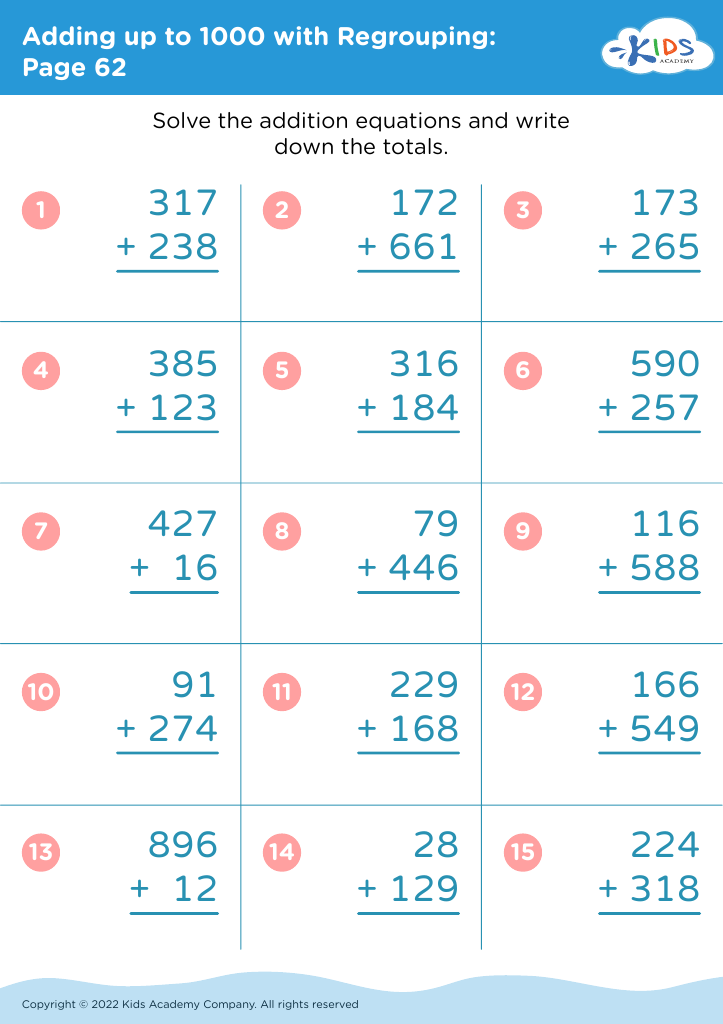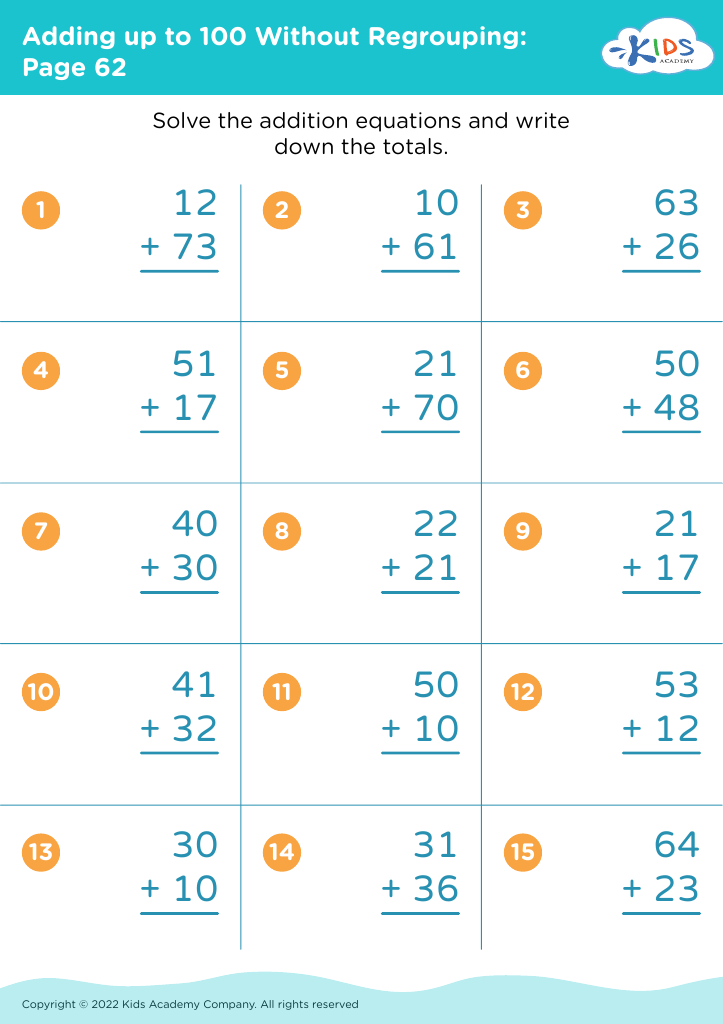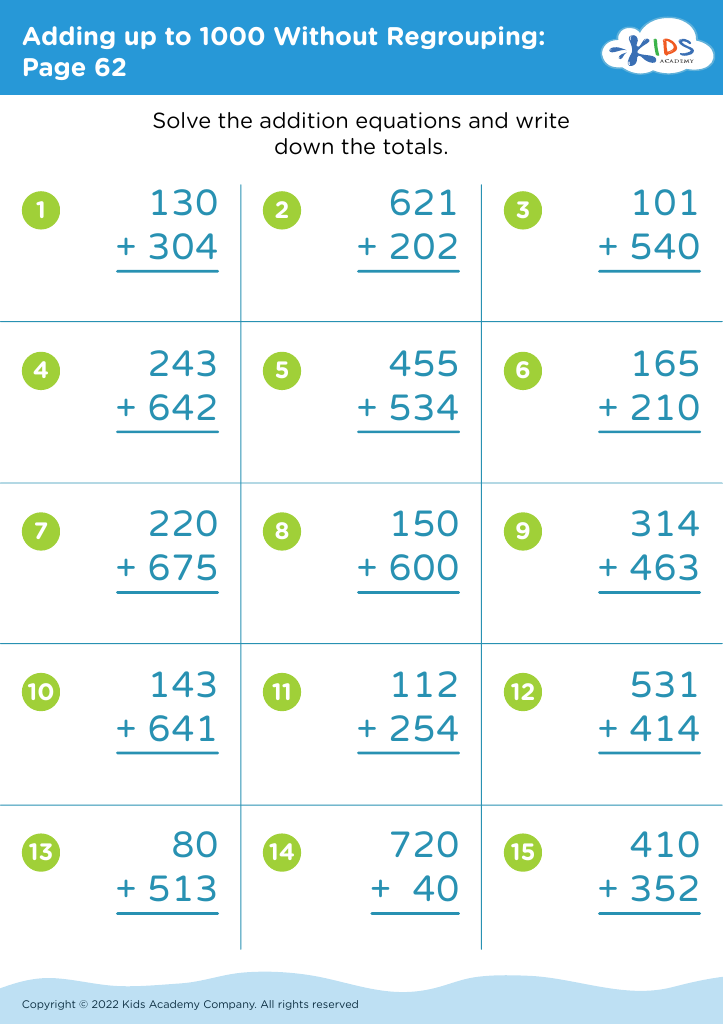Identifying fractions Addition & Subtraction Worksheets for Ages 7-9
4 filtered results
-
From - To
Discover our engaging "Identifying Fractions Addition & Subtraction Worksheets" designed for children ages 7-9! These interactive worksheets help young learners grasp the concepts of fractions through fun, hands-on activities that promote critical thinking and problem-solving skills. Perfect for classroom use or at-home practice, our resources feature a variety of exercises that challenge students to add and subtract fractions in a visually appealing and accessible manner. Encourage your child's confidence in mathematics as they improve their understanding of fractions while enjoying the learning process. Explore our collection to support your child's journey in mastering fractions today!
Understanding fractions is a crucial mathematical skill for children aged 7-9, laying the foundation for more advanced concepts in the future. Parents and teachers should prioritize identifying, adding, and subtracting fractions for several reasons.
First, fractions are an integral part of everyday life—whether measuring ingredients in cooking, dividing items among friends, or understanding concepts in science. Teaching these skills empowers children with practical knowledge that they will use frequently, fostering independence.
Second, foundational fraction skills enhance overall mathematical understanding. Mastering addition and subtraction of fractions builds confidence and helps children grasp related concepts such as multiplication and division. This prepares them for more complex topics like decimals and percentages.
Additionally, engaging with fractions develops critical thinking and problem-solving abilities. It encourages children to think about parts of a whole, improving their analytical skills and making connections across various areas of learning.
By identifying and working with fractions, parents and teachers help children cultivate a love for learning math, making it less intimidating and more enjoyable. Ultimately, emphasizing fractions supports children not only academically but also in their daily decision-making, rounding them out as competent and confident individuals.




















